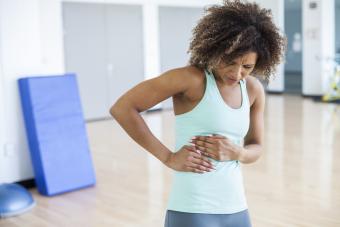
The immune system contains organs, tissues and cells that protect against acute and chronic health conditions. While there are a number of ways in which you can build a stronger immune system, incorporating physical activity can be especially effective.
Positive Effects
Exercise has long been touted as a must when it comes to promoting a long, healthy life. In fact, research suggests that exercise cannot only be helpful when it comes to preventing chronic illness - such as cardiovascular disease and cancer - but can actually protect you from more acute illnesses, including the common cold.
An article published in Neuroendocrinology Letters titled "The effects of exercise on the immune system and stress hormones in sportswomen" supports this. In fact, researchers found that women who engaged in 30 minutes of aerobic exercise experienced a boost in immunoglobulins (or antibodies, as they are sometimes called) as compared to those who were sedentary or engaged in anaerobic exercise. These antibodies improve immune system function by aiding in the destruction of foreign substances, notes WebMD.
Exercise not only increases the number of immunoglobulins, but also makes them more effective at targeting and killing viruses. Triathlete Europe contributor Dr. Jeffrey Sankoff notes that adults who exercise on a regular basis may decrease their likelihood of catching a cold by as much as 50 percent.
Negative Effects
When it comes to boosting immune system function with exercise, more isn't always better. In fact, Dr. Sankoff reports that individuals who engage in high-intensity exercise for an extended period of time - such as that which may occur when training for a long-durance foot or bike race - may actually experience an increase in the release of cortisol and epinephrine in their bloodstream.
Increases in the release of these hormones may significantly reduce the effectiveness of circulating immune cells, notes Dr. Sankoff. As immune cells become less effective, they experience difficulty when it comes to fighting off acute illness. This decrease in immune cell function may last for several days following the completion of high-intensity exercise bouts.
Exercise Yourself Healthy
Exercising at the right intensity level has been proven to be effective when it comes to boosting immune system function. To maximize immune system function, exercisers should choose the right type and intensity of physical activity. Aim for 60 minutes of aerobic exercise at a moderate intensity daily.
Speak to your doctor about starting a new exercise routine if you aren't a regular exerciser.







